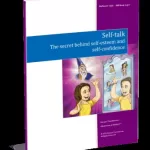Is Adventures in Wisdom Research-based?
Yes! Our Research-based Coaching Curriculum and Story-Driven Approach Brings Life Coaching to Kids
Coaching Curriculum
Why story-based coaching works
Building confidence
Building self-esteem
Developing resilience
Why do parents hire a coach for their kids?
How is coaching different from counseling?
How is coaching kids different from coaching adults?
Why Coaching Stories #1 Coaching Tool
Using the STORY Coaching Process
Who can become a life coach for kids?
What’s Next?
Learn how you can bring life coaching to children!
How to choose a Child Life Coach Certification Program
At Adventures in Wisdom, we believe that helping children build confidence, resilience, and emotional strength is one of the greatest gifts we can give them.
And we believe that mindset skills should be taught proactively, not just as a response to problems.
That’s why The Adventures in Wisdom Life Coaching for Kids Curriculum is grounded in research, drawing from research in neuroscience, positive psychology, cognitive behavior therapy (CBT), emotional intelligence, and growth mindset theory, and brought to life through the most powerful learning tool of all: storytelling.
The 27 mindset skills WISDOM Coaches help children develop are taught through a non-clinical, coaching-based approach designed to support children’s growth outside of therapy or medical treatment.
Why Story-Based Coaching Works
Stories are how children make sense of the world. Neuroscience shows that when we hear stories, the brain doesn’t just process language, it activates the sensory, emotional, and motor centers as well – creating a powerful experience for children. This means stories are deeply engaging, emotionally resonant, and highly memorable, creating deeper learning than lectures or direct instruction.
By using stories to teach mindset skills, we help children:
- Emotionally connect with key concepts
- See real-life examples through relatable characters
- Practice critical thinking, reflection, and application
- Create lasting change at both the conscious and subconscious levels
Our STORY Coaching Process™ is specifically designed to engage the whole brain and the whole child, activating both logic and emotion, and reinforcing skills through visualization, self-talk, guided discussion, and multi-sensory coaching activities.
Based on Research: The Science Behind the Skills
Our curriculum draws from leading-edge research in neuroscience, positive psychology, cognitive behavioral therapy (CBT), emotional intelligence, and growth mindset theory. Below are the key skills children develop through our program and the scientific principles behind them.
Understanding How the Mind Works
Children are empowered when they understand how their brain and belief systems work. We introduce core concepts such as:
- The conscious vs. subconscious mind
- How the brain builds habits through neural pathways
- How we can proactively stimulate our reticular activating system to help us achieve our goals
- The power of self-talk and how it defines our identify and how we feel
- How thoughts create feelings, actions, and results and how we can use power shifting to change our thoughts and change our experience
By helping kids understand that their brain can learn, adapt, and grow, we demystify mindset work and set the stage for lasting transformation.
Key Research:
- Self-directed neuroplasticity (Doidge, 2007)
- Subconscious belief systems and behavior (Bargh & Chartrand, 1999)
- Cognitive-behavioral models of thought-emotion-behavior (Beck, 1975)
Building Confidence
Confidence comes from experience, belief, and stretching outside of your comfort zone. And confidence is a skill that can be developed.
Through the Adventures in Wisdom Coaching Curriculum and the guidance of a coach, we help children build confidence by:
- Teaching them to replace “I can’t” with “I can”
- Practicing courageous actions to stretch outside of their comfort zone
- Using visualization and affirmations to build belief and mental rehearsal
Children develop the internal proof that they can handle challenges, try new things, and grow through discomfort.
Key Research:
- Goal setting and performance (Locke & Latham, 2002)
- Visualization and neural activation (Guillot & Collet, 2005)
Building Positive Self-Esteem
Unlike confidence, which is task-based, self-esteem is identity-based. It’s how a child sees themselves at their core. Self-esteem is a choice and a skill that can be developed.
Through our curriculum and coaching process, children learn to:
- Appreciate their uniqueness and strengths
- Practice positive self-talk and affirmations so that it becomes a habit
- Create a healthy internal dialogue that supports rather than sabotages
They learn that self-worth is not based on performance or praise, it comes from within.
Key Research:
- Positive self-affirmation and brain reward systems (Falk et al., 2015)
- “I am” identity statements and subconscious influence (Schwartz & Begley, 2002)
Developing Resilience Skills
Life is full of challenges, changes, and setbacks. Resilient children know how to bounce back and navigate the ups and downs of growing up. And resilience is a skill that can be taught.
Through our stories and coaching, children learn how to:
- Reframe mistakes, disappointments, or “failure” as a steppingstone to growth
- Manage fear using calming strategies, positive self-talk, visualization, and taking action
- Navigate change and uncertainty with flexibility and courage
They develop emotional tools that help them feel capable, even when life is hard.
Key Research:
- Resilience processes in children (Masten, 2001; Harvard Center on the Developing Child)
- Emotional regulation and the brain (Siegel, 2012; Zelazo & Lyons, 2012)
- Reframing and explanatory style (Seligman, 1995)
Developing Skills for Achievement
Using Visualization, Affirmations, Gratitude, and Goal Setting
We help children harness the mental tools of success used by top athletes, performers, and leaders.
Children learn to:
- Create a vision for their lives vs drifting through life
- Visualize success before it happens, programming both their conscious mind and subconscious mind to create success
- Use affirmations to build belief, identity, and achieve goals
- Set goals and break those goals into actionable tasks to accomplish them
- Learn steps to take when things go off course
- Practice gratitude to shift perspective and build positivity
These techniques strengthen focus, motivation, and emotional well-being—and give children a blueprint for achieving what matters to them.
Key Research:
- Mental rehearsal and skill improvement (Driskell et al., 1994)
- Gratitude and emotional regulation (Emmons & McCullough, 2003)
- Writing and planning goals (Matthews, 2015; Oettingen, 2014)
Becoming a Self-Leader
Ultimately, our mission is to help children become the leaders of their own lives. That means equipping them with the mindset and moral compass to:
- Live life with integrity and responsibility
- Make good decisions—even under pressure
- Stand up to peer pressure and stay true to their morals and values
- Treat others and themselves with kindness and respect
These aren’t just character traits, they’re life skills that children must be taught and given space to practice.
Key Research:
- Self-determination theory (Deci & Ryan, 1985)
- Moral development and agency (Bandura, 1997)
- Social-emotional learning outcomes (CASEL, 2020)
The Result: Kids Who Are Ready for Life
At Adventures in Wisdom, we don’t just coach children, we equip them to coach themselves. Through story, conversation, and practice, children learn to develop their own inner wisdom and make decisions from a place of strength, not fear.
Our curriculum is more than research-based, it is experience-tested, used by coaches in over 30 countries for over a decade, with powerful results in children’s lives.
Because when kids believe in themselves, understand their minds, and have the tools to face life’s challenges…they thrive.




